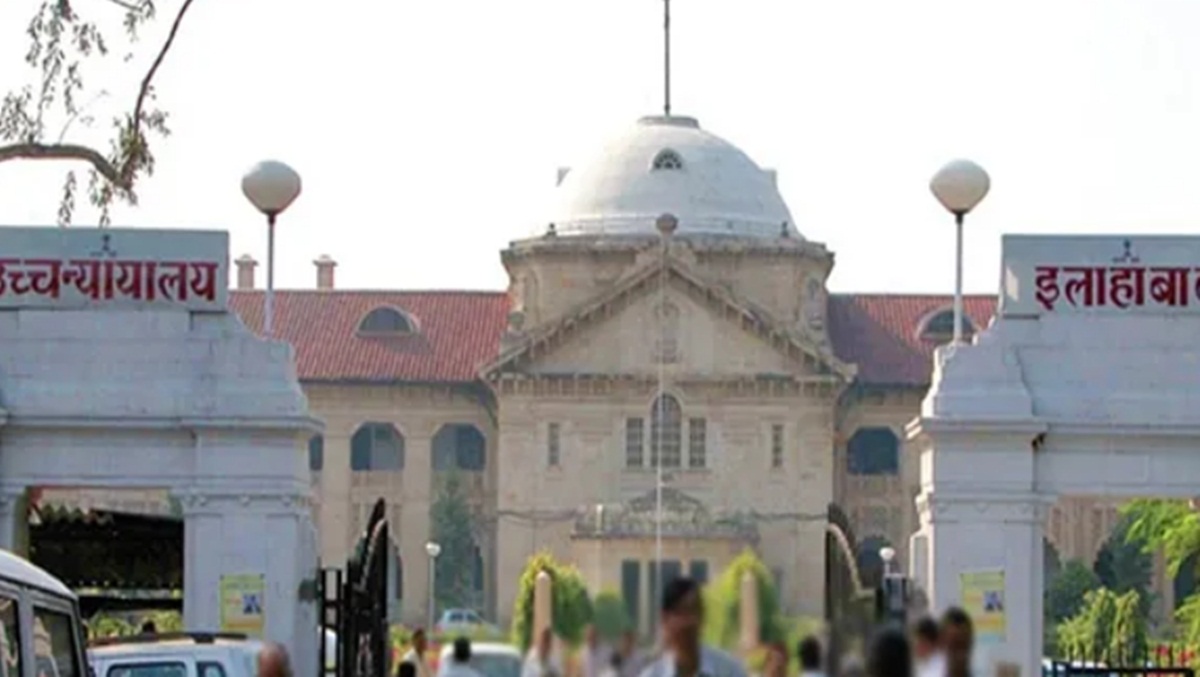In a controversial ruling, the Allahabad High Court granted bail to Abhishek, an accused of raping a minor girl, after he assured the court that he would marry her and take care of their newborn child. The court’s decision, announced on Tuesday, raises significant questions about the legal and ethical implications surrounding such cases.
Justice Krishan Pahal, who presided over the case, emphasized the need for a nuanced approach in matters involving adolescent relationships. He directed the accused to fulfill his promise by marrying the victim within three months of his release from jail and taking responsibility for the upbringing of their child. The court also mandated that Abhishek deposit ₹2 lakh in a fixed account in the name of the newborn, to be accessible when the child reaches adulthood.
“The applicant shall deposit a sum of ₹2,00,000 in the name of the newborn baby of the victim till her attaining the age of majority within a period of six months from the date of release from jail,” Justice Pahal stated, highlighting the court’s focus on ensuring financial security for the child.
The prosecution presented a grim narrative, alleging that Abhishek, aged 22, deceived the 15-year-old victim under the pretense of marriage, leading to her pregnancy. Following his refusal to marry her and threats directed at her, the victim reported the incident, prompting legal action under the Indian Penal Code and the Protection of Children from Sexual Offences (POCSO) Act at the Chilkana police station in Saharanpur district.
The defense counsel contended that the victim was now of legal age, citing an ossification report that indicated she was 18. They argued that the survivor had stated in her testimony before a magistrate that no force was used against her. The lawyer further assured the court that if granted bail, Abhishek would not misuse his freedom and would indeed fulfill his obligations.
In light of these arguments and the complex nature of adolescent relationships, the court concluded that the circumstances warranted a careful consideration of the case. While this ruling has drawn attention to the legal ramifications surrounding consent and responsibility in such sensitive matters, it also underscores the ongoing challenges faced by the judicial system in addressing cases of sexual violence.
As this case unfolds, it prompts a broader conversation about the responsibilities of individuals in positions of power and the societal expectations regarding the protection and welfare of minors.








how can i get clomid without prescription can you buy generic clomiphene online where buy generic clomid without dr prescription where to buy generic clomid without dr prescription can you buy generic clomid for sale can i buy generic clomid no prescription order clomiphene online
This is a topic which is near to my callousness… Many thanks! Unerringly where can I upon the phone details in the course of questions?
More articles like this would remedy the blogosphere richer.
order semaglutide 14 mg – brand periactin cyproheptadine 4 mg cheap
domperidone sale – buy flexeril 15mg online brand cyclobenzaprine
buy propranolol – methotrexate 5mg ca methotrexate oral
order azithromycin 500mg pill – buy cheap azithromycin bystolic 20mg sale
buy augmentin medication – atbio info ampicillin antibiotic online
buy generic esomeprazole over the counter – https://anexamate.com/ nexium 20mg cheap
buy medex pills – https://coumamide.com/ buy losartan 50mg without prescription
purchase mobic online – https://moboxsin.com/ mobic 7.5mg uk
buy deltasone 10mg generic – https://apreplson.com/ buy prednisone 20mg pills
amoxicillin for sale online – amoxicillin online buy buy amoxicillin for sale
buy cenforce 100mg for sale – https://cenforcers.com/# buy cenforce without a prescription
cialis high blood pressure – https://ciltadgn.com/# side effects of cialis daily
evolution peptides tadalafil – https://strongtadafl.com/ shelf life of liquid tadalafil
This is the stripe of topic I enjoy reading. click
buy sildenafil citrate 50mg – strong vpls sildenafil 50mg cost
More posts like this would make the blogosphere more useful. cost gabapentin 800mg
Facts blog you be undergoing here.. It’s hard to espy strong calibre script like yours these days. I truly recognize individuals like you! Withstand mindfulness!! https://ursxdol.com/amoxicillin-antibiotic/
This website really has all of the bumf and facts I needed adjacent to this thesis and didn’t know who to ask. https://prohnrg.com/product/atenolol-50-mg-online/
The thoroughness in this break down is noteworthy. https://aranitidine.com/fr/modalert-en-france/
More articles like this would make the blogosphere richer. https://ondactone.com/simvastatin/
This is the type of delivery I unearth helpful.
buy spironolactone generic
This website really has all of the tidings and facts I needed to this thesis and didn’t comprehend who to ask. http://www.dbgjjs.com/home.php?mod=space&uid=531990
buy forxiga 10 mg sale – dapagliflozin 10mg pill order forxiga 10 mg online cheap
xenical pill – click order orlistat 120mg pills
I am actually thrilled to glitter at this blog posts which consists of tons of of use facts, thanks for providing such data. http://www.01.com.hk/member.php?Action=viewprofile&username=Otskkp
More posts like this would create the online time more useful. prevacid 30mg sale
I’ll certainly bring back to review more.
kuwin sở hữu kho game đa dạng từ slot đến trò chơi bài đổi thưởng, mang đến cho bạn những giây phút giải trí tuyệt vời.
Tham gia cộng đồng game thủ tại Go88 để trải nghiệm các trò chơi bài, poker phổ biến nhất hiện nay.
Với giao diện mượt mà và ưu đãi hấp dẫn, MM88 là lựa chọn lý tưởng cho các tín đồ giải trí trực tuyến.
online blackjack real money
best online gambling games
online casino real money no deposit bonus
mgm grand sportsbook betmgm-play betmgm NV
Venture into a realm of virtual thrills and real rewards. crowns coins casino offers customizable avatars for personalized gaming. Customize, play, and conquer!
Spin into pure joy with Sweet Bonanza — where wins pay in any position and cascades keep coming! Unlock sweet bonanza rtp free spins packed with 10x–100x bombs. Sweet success awaits!
Thunder to the top of the leaderboards. buffalo slot free play unleashes scatters, wild herds, and progressive thunder. Spin today!
Trusted by the biggest names in streaming. Loved by players who value speed and fairness. stake crypto casino — where crypto meets real casino adrenaline.
Turn $5 into massive potential at DraftKings free spins Casino. Claim 500 free spins on Cash Eruption plus up to $1K lossback on your opening day. Premium games, huge jackpots—start your winning streak!